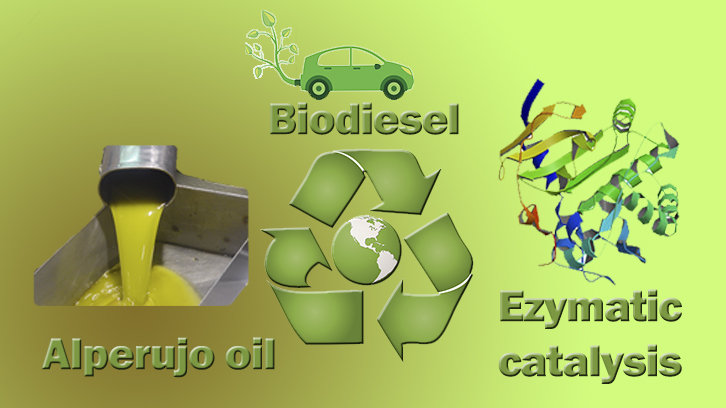Enzymatic synthesis of biodiesel using waste oils as a substrate: the new alternative

Nowadays, some new strategies for non-fossil fuel production have been developed due to the depletion of fuel reserves. One of these is the synthesis of biodiesel (also known as mono-alkyl esters of long chain fatty acids). Environmental benefits have been demonstrated for the use of biodiesel, such as the reduction of PAHs (polycyclic aromatic hydrocarbons) and carbon monoxide, and also because biodiesel can be directly used as a motor fuel without being treated.
Biodiesel is produced all over the world through the basic catalysis of transesterification of the triacylglycerols present in substrates, the most common of which are edible oils such as cottonseed oil, palm oil, sunflower oil and soya oil. Thus, the availability of agricultural lands for biodiesel-producing companies and also the utilisation of these edible oils generates a constant ethical conflict.
In order to avoid this problem, other substrate sources could be chosen. A recent alternative uses non-edible oils, for instance waste oils coming from industry or the restaurant sector. Major advantages have been described: the added value ensuing from their re-utilisation and the eco-friendly process, which reduces waste and creates green energies. However, the main feature of these oils is their high content of free fatty acids (FFAs), making basic catalysis impossible due to saponification.
In order to solve this issue, new alternatives have been developed. The most important one is enzymatic catalysis through lipases. As shown in literature, lipases (tryacylglycerol acylhidrolases E.C.3.1.1.3) are able to efficiently catalyse the transesterification reaction to produce biodiesel.
In this study, the utilisation of alperujo oil was tested as a biodiesel substrate. Alperujo oil is a by-product of olive oil extraction processes, so it is easily available in Spain. This waste oil, as previously stated, has a high percentage of FFA content, namely 19%. Covalently immobilised Recombinant Rhizopus oryzae lipase (expressed in Pichia pastoris and produced by our research group) was used as a biocatalyst.
The main conclusions of this work are, first of all, that the substrate used is a perfect one to produce biodiesel. The key is the presence of FFAs, improving up to ten times the initial rate comparing with the same substrate without FFAs. Moreover, the stability of the biocatalyst has been also boosted, which means it is possible to re-use it without losing lipase activity.
Department of Chemical, Biological and Environmental Engineering
References
Bonet-Ragel, K.; Canet, A.; Benaiges, D.; Valero, F. Synthesis of biodiesel from high FFA alperujo oil catalysed by immobilised lipase. Fuel. 2015, vol. 161, p.12-17. doi: 10.1016/j.fuel.2015.08.032.


